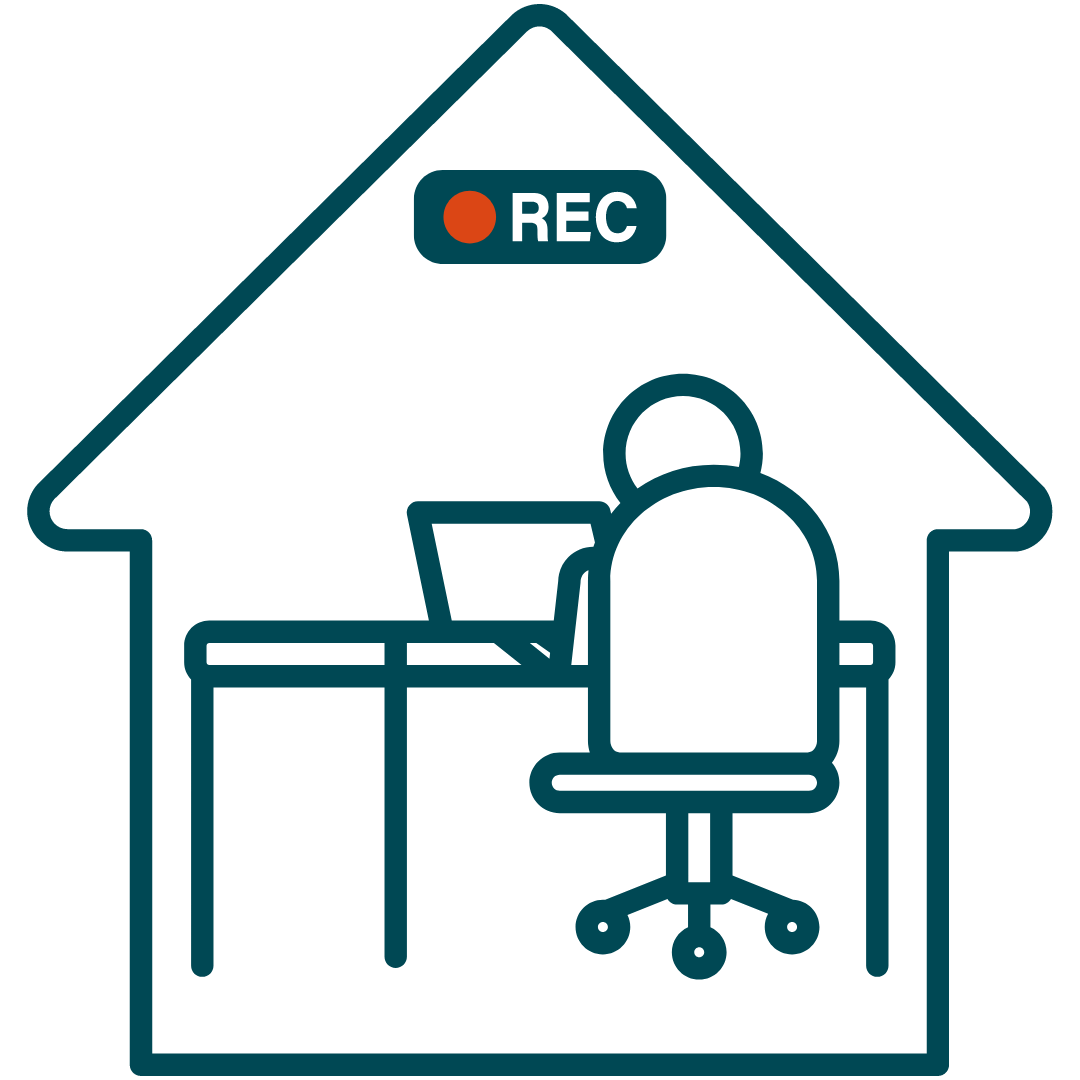Prepare the Perfect Podcast Recording Studio
Prepping your recording space is paramount for podcasters aiming to achieve high-quality recordings.
A well-prepared environment, free of distracting echoes and background noise, ensures a professional and polished audio production, enhancing the overall impact and listener experience of your podcast.
Here are some important things to keep in mind before you set up your home recording studio.

Minimize the echo in your recording space.
You don't have to have studio-quality recordings, but your episode's audio quality should be enjoyable to listen to and free from any distracting sounds. Echoes are one of the most common distracting noises that can detract from audio clarity and professionalism, impacting the overall listener experience.
Thankfully, by adopting simple techniques, such as choosing the right recording environment, using directional microphones, and employing post-production tools, you can easily defeat the echo.

Pick a setting that has built-in soundproofing
A good room for podcasting will have many elements that absorb or deflect sound.
❌ An office space with high ceilings, smooth walls, PVC or laminate floors without carpeting with big windows.
✅ A small walk-in closet or a bedroom with furniture, carpet, and drapes.
What can you do to improve audio quality?
Don’t worry. You don’t need to record in a closet like vocals for songs used to be. A few small changes in the room can make a big difference.
- Open closets and drawers. It might not look very neat, but the more corners and angles you have in the room, the better the sound will be deflected in different directions.
- Hang curtains. If you have curtains or drapes in front of the windows, use them to cover the flat panes so there are fewer surfaces for sound to bounce off of.
- Strategic microphone placement: Experiment with microphone placement to find the optimal distance and angle, minimizing pickup of ambient echoes.
- Avoid spaces with the hum of a washing machine, nearby traffic noises, etc. Even the hum of your computer fan can sometimes make it into recordings. To avoid this, use an external mic and move it away from your computer. This tip alone should be sufficient in most cases.
Alternative option–Portable Vocal Booth: If you want a simple setup and don't have a lot of control over your environment, This small foam vocal booth might be all you need.
Are sound-proof materials worth it?
The short answer: Yes! But, realistically, it’s not always possible to set up a dedicated home studio. If you have access to a dedicated studio where you don't mind covering the walls in sound panels, they can be a great option to significantly improve the sound of your recording.
- DIY budget option: Short on funds but have some time to spare? These DIY acoustic panels might be a good option for you.
- Auralex foam: If you're looking to buy everything pre-made, these panels are a popular option.
In short, if you want studio-quality recordings, sound-proofing with these materials can be a good option. But the fact is, it can get expensive quickly, and a carpeted room with a lot of furniture (or a walk-in closet) can work well, too!

Awesome, Part 5 is finished! ✅
Continue now with Part 6: Record Your First Episode: Voice, style, and storytelling
How To Start a Podcast: The Definitive Guide
- Part 1: Create a Captivating Podcast Concept
- Part 2: Make Your Editorial Calendar
- Part 3: Choose the Right Podcast Equipment for You
- Part 4: Brand Your Content: Find the perfect title, music, and artwork
- Part 5: Prepare the Perfect Podcast Recording Studio
- Part 6: Record Your First Episode: Scripting, style, and storytelling
- Part 7: Streamline Your Recording & Editing Workflow
- Part 8: Choose a Podcast Hosting Service: Tips for selection and setup
- Part 9: Maximize your Podcast Reach: Publish to Apple Podcasts, Spotify, Amazon, and other platforms
- Part 10: Learn Powerful Podcast Promotion Strategies
Start your podcast today with Podigee
.png)
- Publish your podcast in just a few clicks: on Spotify, Apple Podcasts, Youtube and everywhere else where podcasts are available.
- Unlimited storage for your podcasts, secure and privacy-compliant, detailed playback analytics.
- Outstanding support at every step of your podcast journey, right from the start.